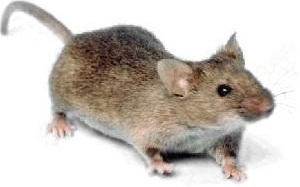Researchers at Harvard Medical School have reversed the aging process in mice and hope to apply this research to combat the symptoms of human aging.
The scientists, working at the Dana-Farber Cancer Institute, had expected to simply stabilize the aging process.
“Instead, we witnessed a dramatic reversal in the signs and symptoms of aging,” said the study’s senior author, Medical School Professor Ronald A. DePinho.
Accumulation of damage to DNA is a major cause of aging, much of which occurs at the tips of chromosomes, telomeres, according to DePinho.
The team bred several generations of genetically-modified mice to test the effects of telomerase, an enzyme which can restore telomere function, according Medical School Research Fellow and study co-author Mariela Jaskelioff.
The mice had a telomerase gene that could be toggled on and off. When the gene was turned off, the mice aged rapidly.
But when the team turned the gene back on, the aging process of the mice reversed. The mice’s worn-out organs were physically regenerated, according to DePinho. The result was that shrunken brains increased in size, the neural stem cell reserves were replenished, and coat hair was restored to a healthy sheen. The mice also regained fertility.
“This is the first time that a very severely aged, degenerative state, equivalent to what you might see in somebody who’s in the eighth or ninth decade of life, has been reversed in an animal,” DePinho said.
The research could possibly be applied to human health, according to DePinho.
“This potentially could lead to increased years of healthy living,” he said.
However, efforts to generate similar results in humans may prove more difficult.
“Human telomere dynamics are very different from mouse telomere dynamics,” Jaskelioff said.
Additional complications could arise from telomerase’s strong correlation to cancer, according Jaskelioff. Ninety percent of human cancers have highly activated telomerase, she noted.
“If you elongate the telomeres, you could prolong the lives of normal cells. But you could also be prolonging the lives of malignant cells,” Jaskelioff said.
Still, DePinho is optimistic about the practical applications of these findings.
“We need to intensify efforts to really understand the basic underpinnings of aging and age-related disease so that we can operate in a more preventive mode to increase the years of healthy living and productive life,” he said.
Read more in News
Two Harvard Marshall Scholars Headed for UKRecommended Articles
-
Professors Win Grants To Promote Quality of LifeHarvard Medical School professor Nicholas A. Christakis and economics professor David I. Laibson ’88 each received a grant of about $1.5 million from the National Institute on Aging to implement research geared toward enhancing the quality of life.
-
Study Unveils Mice That ‘Smell’ LightResearchers from Harvard and the Cold Spring Harbor Laboratory have engineered a mouse that can “smell” light, which offers a novel approach to studying the science of olfaction.
-
 Mice That Can Smell Light? It's Possible.
Mice That Can Smell Light? It's Possible. -
 Harvard Scientists Reverse Aging Symptoms in Mice
Harvard Scientists Reverse Aging Symptoms in Mice -
Artists Talk and Hawk Their Wares at Alternative Comics MeccaFor the second year in a row, MICE has attracted independent artists, graphic novelists, and writers hoping to showcase and sell their work.
-
Neuronal Transplants Help Rebuild Diseased BrainsScientists from Harvard University, Harvard Medical School, Massachusetts General Hospital, and Beth Israel Deaconess Medical Center successfully rebuilt diseased brain circuitry in mice by transplanting new neurons. The research, which was published in the November 25 issue of “Science,” indicates that the right type of neuron could successfully integrate and partially restore functionality to areas of the brain that naturally do not regenerate neurons themselves.













